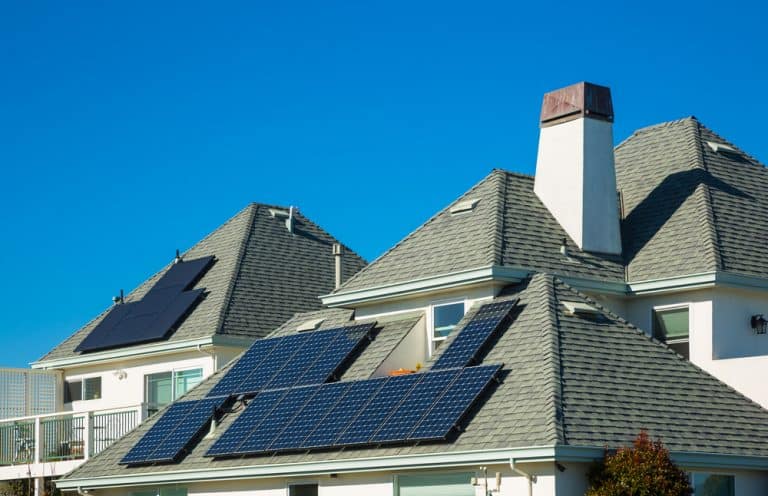Clarifying Nevada Rooftop Solar’s No-Cost Programs

Many have misconceptions about no-cost Nevada rooftop solar programs. Unfortunately, deceptive advertisements and their creators have either used imprecise language, miscommunicated the incentives of the no-cost programs, or downright fibbed about the matter. However, if you want the facts, you’re in the right place.
Clark County’s ‘No-cost’ Program
Nevada’s no-cost solar program targeting Clark County misled many Nevadans. Fake notices popped up in Clark County in 2018, stating that the state required free solar. The posters even had a reference to Nevada State Law A.B. 405, which pertains to residential solar in the Silver State.
Clark County doesn’t have a no-cost solar program, and A.B. 405 makes no claims about said no-cost solar program. Ironically, this bill instructs the state of Nevada’s Public Utilities Commission to help customers with complaints against dishonest solar companies.
Nevada Solar Power Incentives
Although solar isn’t free, many incentives make it affordable and it saves heaps of money over time. When compared to local utility rates, residential solar often becomes a high-return, low-risk investment for Nevada residents.
Nevada State Incentives
Nevada also offers portfolio energy credits to every solar array installation. Solar customers can sell these credits to their local utility company or keep them. Utilities often pay for these credits so they can hit Nevada’s Renewable Energy Portfolio Standard. Nevada also has incentives specific to commercial installations. These organizations can take advantage of both property and sales tax incentives.
The Truth Behind Free-Solar Financing Options
Some solar ads deceptively refer to their preferred financing option when they state they can offer free solar, invoking the “no up-front cost” case. While solar is cheaper over the long haul than utility-generated electricity, it still isn’t free. The main options to finance a home solar system include paying in cash, obtaining a loan, or leasing the solar panels. Since financing options influence the return on investment for solar, potential customers should consider the total cost of each before making a decision.
Paying in Cash
If you can pay in cash, it’s the best option for maximizing ROI. Those who pay cash don’t owe interest and therefore save most. These individuals also own the array, which makes it easy to sell solar with the home. Most solar companies also offer a discount for cash purchases, which further decreases the price and compounds the savings.
Reno NV Solar Loans
A low-interest loan with a short payback period is the next best financing option. Often solar loans also don’t have a required down payment, and they replace the electricity bill, which makes transitioning from an electricity bill to solar all the more seamless. However, make sure the numbers for the loan make sense. For instance, paying less per month sounds great, but if the loan has a high-interest rate and long loan term, it will cost more over time.
Nevada Power Purchase Agreements (PPAs)
A Power Purchase Agreement, also known as a PPA, may sound good at first, but it costs more. PPA is a fancy name for a solar lease. Instead of owning the solar panels, solar customers pay for the energy they use from the company-owned solar panels.
Leasing solar lowers customer’s monthly bills by paying less per watt for power. If the customer only cares about decreasing the monthly bill, leasing may prove a good option. However, if long-term savings have more importance, a PPA isn’t as viable.
Those who enter solar leases end up paying more for their energy over their 25-year PPA than they would with a 15-year loan. Individuals also don’t receive any of the state or federal incentives that come with owning a home solar array. Instead, all of these incentives go to the solar company that owns the solar panels, and the utility pays the solar company for excess solar generation put on the grid. While these are not comprehensive details for owning vs. leasing panels, they’re a good starting point for homeowners weighing the pros and cons of each.
The Key Takeaway Regarding Nevada Solar Incentives
While free Nevada solar programs don’t exist, the incentives outlined above, do. Technology advancement, federal and state incentives; and NV Energy’s net metering tiers have made solar a worthwhile investment for most Nevadans.



Send a Message
Oops! We could not locate your form.